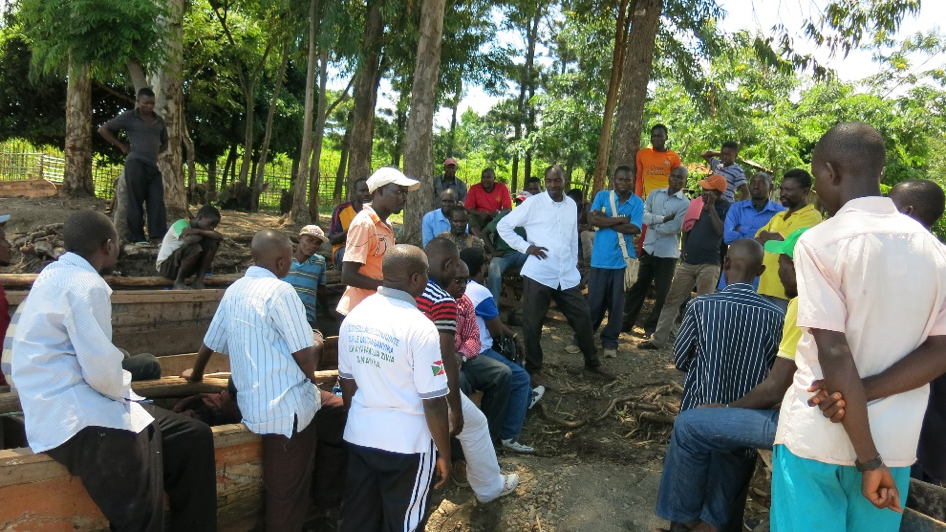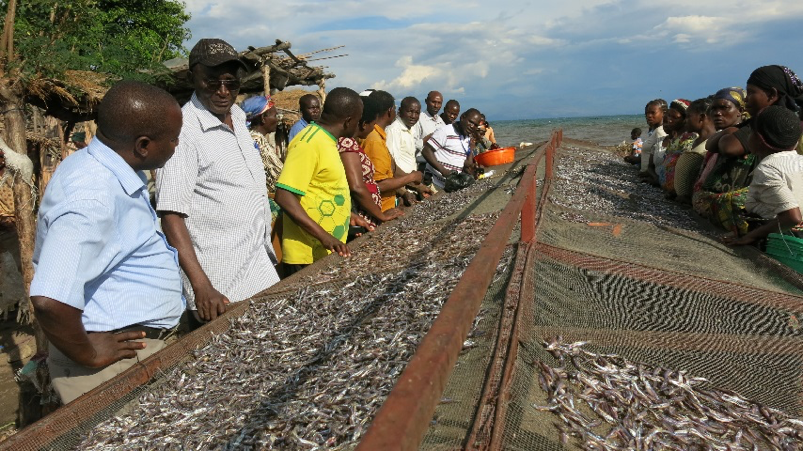In 2015, as part of the ongoing cross-border efforts, Burundians and Congolese came together to share experiences and find solutions to fish management on Lake Tanganyika.
Overview

In 2014, the IUCN-NL Cross-Border Governance Program, Burundi component, brought together key stakeholders to improve the governance of the African Great Lakes. Their efforts specifically benefited the fishing and local communities living in four of the countries within the African Great Lakes region: Burundi, the Democratic Republic of the Congo, Rwanda and Uganda.
The respective countries agreed to create, with IUCN-NL support, a Transboundary Observatory, Enanga, and an associated website, www.enanga.org. Enanga is a framework for information exchange and communication to support natural resource management. Observers from four countries provide information to Enanga.
The Observatory set the stage for a transboundary learning exchange in 2015 between Burundi and the DRC. In November 2015, the Burundian Association for Nature Protection (ABN) organized a visit to the Mboko-Uvira region to share experiences between Lake Tanganyika fishermen and traders from the DRC and Burundi. In addition to the fishermen, the Burundian team included transboundary observers. The goal of this trip was to improve knowledge sharing and find solutions to cross-border problems.
The visit allowed Burundian fishermen to understand the organization of fishing and fish landing sites in the DRC. Together, the two countries put in place a framework of collaboration for addressing cross-border conflicts with the support of both countries navies.

Since the Congolese fish landing sites are not well situated compared to Burundian fish landing sites, the Congolese fish industry was struggling. To address this, the President of Burundian fishermen and traders promised to support the Congolese in improving management of Lake Tanganyika. In addition, he suggested a new business partnership: the Congolese would preserve their catch in freezers, which would create a stock that would benefit the industry in both countries.
The Burundian and Congolese women fish sellers also signed collaborative agreements. The Congolese women thanked the Burundians for their support and granted them a field for growing crops.
Lastly, the visit encouraged collaboration by facilitating discussions on the future management of Lake Tanganyika through trainings in Bujumbura for key stakeholders, including Ministries of Environment, local administrations, government agencies, navies, media and environmental NGOs.
This story was provided by Eric Niyongabo, a transboundary coordinator.